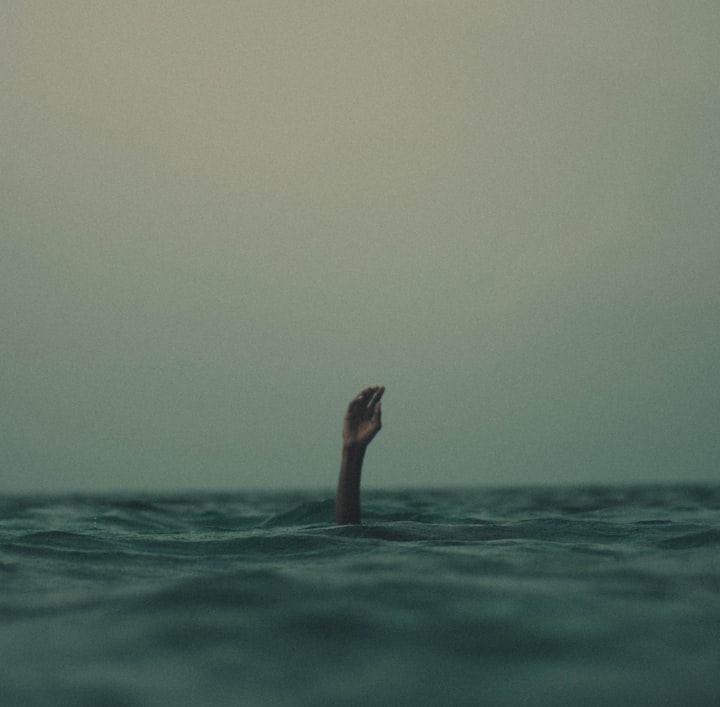Quick One: Survival Secrets Unveiled
The Extreme Limits of Human Resilience

Journey with us as we delve into the extraordinary realm of human survival, pushing the boundaries of what we thought possible. Today, we embark on a captivating exploration, seeking answers to questions that boggle the mind. How hot or cold can our bodies endure? Is the survival rule of three a genuine guideline? And what is the true extent of human longevity? The pursuit of these intriguing limits will challenge your perceptions and leave you in awe. However, we must emphasize that we do not endorse anyone attempting to surpass these boundaries. Instead, our mission is to unravel the truth from the myths, uncovering the facts behind the misconceptions.
Our journey begins at the very bottom of the scale, where the secrets of survival in extreme temperatures await.
Frozen Resilience: How Cold Can We Go?
The human core temperature is what keeps the body functioning. To survive, you must keep that core at an ample temperature of 37℃ (98.6F). If you begin losing more heat than your body can produce, then the core temperature begins to drop. The core temperature dropping as little as 2℃ can cause hypothermia to set in. If it drops any lower you begin to lose consciousness, completely passing out at 30℃ (86F). At 25℃ (77F), you'll go into cardiac arrest, and at 24℃ (75F), death looms ominously. Yet, in the chilling depths of the freezing cold lies the tale of Anna Bgenholm, a survivor who defied the odds. Falling through a frozen sheet of ice and being dragged beneath a mountain stream, she found herself trapped under 8 inches of ice for a staggering 80 minutes. Her core temperature plummeted to a bone-chilling 13.7°C (56.7F). Medical history was changed forever as Anna's miraculous survival led to the discovery of therapeutic hypothermia, a life-saving technique used during open heart surgeries and for victims of strokes, liver failure, and epileptic seizures.
Breathless Feats: How Long Can We Hold Our Breath?
The average person is said to hold their breath for 1-3 minutes. But diving into the world of freedivers, we witness the incredible skill of Branko Petrovi, who held his breath for a mind-boggling 11 minutes and 54 seconds. By employing the Mammalian Diving Reflex, which reduces heart rate and oxygen consumption, Petrovi pushed the boundaries of human breath-holding. But the question remains: is this the limit? Experts suggest elite breath-hold divers may reach 15 minutes before leveling off. Astonishingly, taking a breath of pure oxygen can almost double the time, as demonstrated by Aleix Segura's 24-minute and 3-second feat in 2016.
Sizzling Survival: How Much Heat Can We Handle?
Humans, adapted to hot climates, have produced amazing feats like the Badwater Ultramarathon, enduring temperatures up to 53℃ (127.4F). But beware, as humidity plays a crucial role. In a very humid 60℃ (140F) environment, your core temperature could spike to 40℃ (104F) within 10 minutes, leading to severe hyperthermia and, if untreated, death. Yet Willie Jones from Atlanta astounded doctors when he survived with a body temperature of 46.5℃ (115.7F) during a scorching heatwave. Nevertheless, humans have their limits, and this chapter delves into how extreme heat can prove deadly.
Parched Endurance: How Long Can We Go Without Water?
As we explore human survival without water, the scenario becomes dire. In the sweltering heat, you could lose 1.5 liters of water per hour, leading to dehydration and organ failure within a few hours. In cooler conditions with minimal exertion, one could last around a week. However, the average person could survive 3–4 days without water under typical circumstances. But Andreas Mihavecz shattered expectations when he survived for 18 days in a police cell, allegedly by licking condensation off the walls.
Starving Resilience: How Long Can We Go Without Food?
In a battle against starvation, obese individuals may fare better due to their ability to metabolize fat stores. Angus Barbieri demonstrated this by fasting for a stunning 382 days, consuming only zero-calorie drinks and vitamins. However, without adequate water-soluble B vitamins to metabolize fat, the survival rate would be much shorter. Gandhi's 21-day fast and other cases were reviewed in the British Medical Journal, concluding that a well-hydrated person could survive 30–40 days without food, with severe symptoms appearing around 35–40 days...and death occurring from 45+ days.
Slumbering Dangers: The Perils of Sleep Deprivation
In a sleep-deprived world, the dangers of exhaustion are often overlooked. Randy Gardner's Guinness World Record of staying awake for 264 hours (11 days) sparked curiosity, but it came at a cost. Gardner suffered delusions, hallucinations, and paranoia, resembling symptoms of psychosis. Although he made a full recovery, prolonged sleep deprivation can be fatal. Fatal familial insomnia, a rare disease, proves to be the ultimate limit, leading to death within three months due to the complete inability to sleep.
The Longest Sleep: Survival After Death
As we delve into the mysterious realm of survival after death, the astonishing tale of Velma Thomas captivates our imagination. For 17 hours, she lay lifeless with no brain activity. Doctors declared her deceased and prepared to remove life support, but to their astonishment, she suddenly moved her hand, coughed and awoke just 10 minutes later. Unexplainable to this day, such cases remind us that life's mysteries can defy scientific understanding.
The Ageless Enigma: How Old Can We Get?
The debate about human longevity continues, with conflicting studies on the maximum age limit. While some argue it may plateau around 115 years, others suggest that if you reach 105, the risk of dying plateaus, defying the notion of a finite age. Jeanne Calment, the world's oldest person, died at the age of 122, leaving us to ponder the secrets of living a long and healthy life.
Conclusion
In our journey to understand our body's astonishing limits, we come across stories of survival, persistence, and mysteries that defy explanation. We begin to understand the great miracles of the human body and mind as we explore the unique and awe-inspiring regions of human potential. So, my readers, may these inspiring stories and intriguing survival secrets inspire you to appreciate the gift of life and embrace its limitless potential.
About the Creator
The Purple Olympian
Stories make the world go round; Words make the world.
I implore you to join me on this inadvertent adventure called life. I have crafted and continue to craft stories I believe is of some sort of entertainment and education values. Enjoy!





Comments
There are no comments for this story
Be the first to respond and start the conversation.